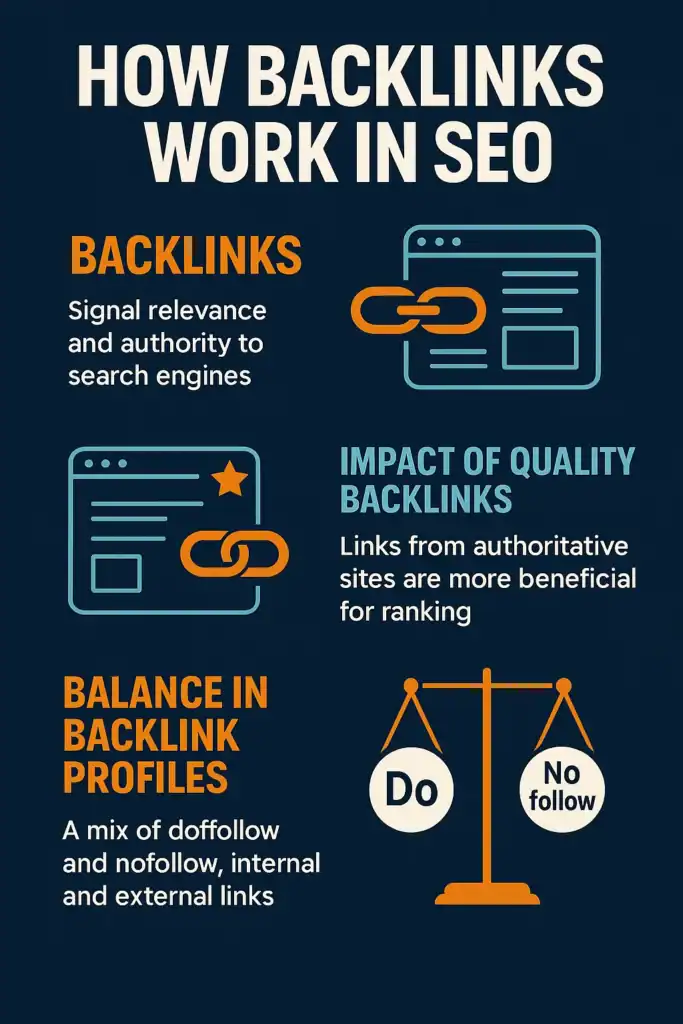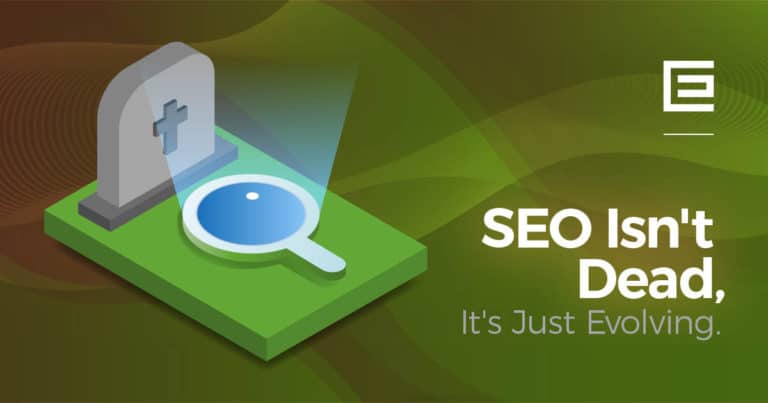What Are Backlinks?
Backlinks are essentially links from one website to a page on another website. Think of them as digital nods of approval, where one website acknowledges the value or relevance of content on another site. These links are not just mere pathways for internet navigation; they are crucial endorsements in the online world. When a website links to another, it’s essentially saying, “This content is noteworthy.” This endorsement, coming from an external source, is what sets backlinks apart from other types of website links.
What are backlinks? They are hyperlinks from other sites to yours, serving as endorsements in the digital landscape.
Importance in SEO
The role of backlinks in Search Engine Optimization (SEO) is pivotal. In the eyes of search engines like Google, backlinks are akin to votes of confidence. They signal that the content on the linked-to site is valuable, credible, and useful. This is why websites with a robust profile of quality backlinks tend to rank higher in search engine results pages (SERPs). Essentially, each backlink is a signal to search engines that others vouch for your content, and in the realm of SEO, such endorsements are gold.
What are backlinks? They are essential SEO backlinks that signal credibility to search engines.
Backlinks not only influence a website’s ranking but also its domain authority. This is a metric that predicts how well a website will rank on SERPs. High-quality backlinks from reputable sites contribute significantly to enhancing a site’s domain authority. It’s a virtuous cycle: as a site’s domain authority increases, it ranks higher on SERPs, which in turn increases the likelihood of receiving more quality backlinks. However, it’s crucial to note that in the world of SEO, the quality of backlinks often trumps quantity. A few high-quality backlinks can be more beneficial than a large number of low-quality ones.
Moreover, backlinks are instrumental in driving referral traffic. When users click on links leading to your site, they bring with them the potential for engagement, conversion, and customer acquisition. This aspect of backlinks goes beyond mere SEO; it taps into the realm of audience building and direct marketing. In essence, a well-structured backlink strategy can elevate a website’s visibility, authority, and user engagement, making it a fundamental component of any comprehensive digital marketing plan.
Understanding Backlinks
Types of Backlinks

Backlinks can be broadly categorized into several types, each serving a unique purpose in the digital ecosystem. The most common types include editorial backlinks, where a website references another as a source of information; guest blogging backlinks, which are obtained by contributing content to another website; and backlinks from partnerships or collaborations, often seen in business relationships. There are also backlinks from testimonials, where users link back to a service provider, and forum and comment backlinks, which, though less impactful, can still contribute to a site’s overall link profile. Understanding these varieties is crucial for anyone looking to enhance their website’s SEO through a strategic backlink approach.
Dofollow vs. Nofollow
Backlinks are further classified into ‘dofollow’ and ‘nofollow’ types, each carrying a different weight in the eyes of search engines. Dofollow links are the most coveted in SEO as they pass on link equity, or ‘link juice’, to the linked website, contributing positively to its search engine ranking. Nofollow links, on the other hand, do not pass on link equity. They were introduced to combat spam but are still useful for driving traffic and providing contextual value. While nofollow links don’t directly contribute to a website’s ranking, they are still an essential part of a balanced and natural-looking backlink profile.
Internal vs. External Links
Another important distinction in the world of backlinks is between internal and external links. Internal links are hyperlinks that connect one page of a website to a different page within the same website. They help in organizing site architecture and spreading link equity throughout the site. External links, in contrast, are links from one website to a different website. These are crucial for SEO as they act as third-party votes of confidence, signaling to search engines that the content is valuable and worth ranking.
| Type of Backlink | Description | SEO Impact |
| Dofollow | Passes link equity | High, boosts rankings |
| Nofollow | Does not pass equity | Indirect, drives traffic |
| Internal | Links within site | Improves navigation |
| External | Links from other sites | Builds authority |
How Backlinks Work in SEO
Backlinks play a pivotal role in SEO by influencing how search engines perceive the relevance and authority of a website. When a site receives backlinks from multiple, authoritative sources, search engines interpret this as a sign of the site’s credibility and usefulness. This, in turn, can lead to higher rankings in search engine results pages. The logic is simple: if numerous reputable sites link to a page, it likely offers valuable content worth showing to users.

The Impact of Quality Backlinks
The quality of backlinks is a critical factor in SEO. Links from high-authority, reputable sites carry more weight and are more beneficial for a site’s search engine ranking than links from lesser-known, low-authority sites. Quality backlinks are seen as endorsements from credible sources, boosting the trustworthiness of the linked-to site in the eyes of search engines. This is why acquiring backlinks from well-established, authoritative websites is a key goal in any SEO strategy.
The Balance in Backlink Profiles
A healthy backlink profile is diverse and balanced, consisting of both dofollow and nofollow links, as well as a mix of internal and external links. This diversity helps in creating a natural link ecosystem that search engines favor. Over-reliance on any one type of link can appear manipulative and may trigger red flags with search engine algorithms. Therefore, a strategic approach to building a backlink profile involves cultivating a variety of high-quality links that collectively enhance the site’s SEO performance while maintaining a natural and organic appearance.

The Role of Backlinks in SEO

Impact on Search Engine Rankings
Backlinks are a major driving force in determining a website’s position in search engine rankings. When a website garners backlinks from various other sites, especially those with high authority and relevance, it sends a strong signal to search engines like Google. This signal suggests that the content on the site is valuable, credible, and worth being ranked highly. The more high-quality backlinks a site has, the more likely it is to rank well for relevant search queries.
Backlinks as a Ranking Factor
Historically, backlinks have been one of the most influential ranking factors in search engine algorithms. They are a key component of Google’s PageRank algorithm, which assesses the quality and quantity of backlinks pointing to a website to determine its importance and relevance. A website with a substantial number of quality backlinks is often perceived as a hub of valuable information and thus is rewarded with higher rankings. This system underpins the fundamental principle of the web as an interconnected network of information, where backlinks serve as bridges connecting relevant and useful content.
Quality Over Quantity
While the number of backlinks is important, the quality of these links plays an even more crucial role. Links from authoritative, well-established websites carry more weight than those from lesser-known, possibly untrustworthy sources. Search engines have evolved to distinguish between high-quality backlinks that contribute to a website’s authority and low-quality links that do not. This distinction is vital because it ensures that rankings are not easily manipulated and that users are directed to the most relevant and reliable content.
Recent Changes in the Significance of Backlinks
The digital landscape is constantly evolving, and with it, the significance of backlinks in SEO has also seen shifts. Search engines, particularly Google, have updated their algorithms to focus more on the relevance and context of backlinks rather than just their quantity. This change is part of a broader move towards prioritizing user experience and high-quality content. As a result, the impact of backlinks on search rankings now depends more on how well they align with the content of both the linking and linked-to sites, rather than merely serving as a count of endorsements.
This evolution means that artificial link-building tactics, such as purchasing backlinks or participating in link schemes, are less effective and can even be penalized. The focus has shifted towards earning backlinks naturally through high-quality, engaging content.
The Future of Backlinks in SEO
Looking forward, the role of backlinks in SEO is likely to continue evolving. As search engines become more advanced in understanding and interpreting user intent, the nuances of how backlinks influence rankings will also change. However, the fundamental principle that backlinks signify the credibility and relevance of content is expected to remain. The key for websites aiming to improve their SEO will be to focus on creating valuable content that naturally attracts backlinks, while also engaging in ethical link-building practices that align with the evolving guidelines of search engines.
How to Acquire Quality Backlinks
Strategies for Building Backlinks
Building a strong portfolio of backlinks is a critical aspect of SEO, but it requires a strategic approach. The first step is creating high-quality, valuable content that naturally attracts backlinks. This could be in the form of well-researched articles, infographics, or original studies. Once you have compelling content, actively promoting it through various channels increases its visibility, thereby enhancing the likelihood of it being linked to. Additionally, reaching out to influencers and websites in your niche for backlinks can be effective, especially if your content adds value to their audience.
Guest Blogging and Content Marketing
Guest blogging is a powerful tool for acquiring quality backlinks. By writing articles for other websites in your industry, you can tap into their audience and gain backlinks to your own site. The key to successful guest blogging is to provide genuinely useful and engaging content that fits well with the host site’s audience. Alongside guest blogging, a robust content marketing strategy that includes creating diverse types of content such as videos, podcasts, and webinars can attract a wider range of backlinks and drive traffic to your site.
Utilizing Social Media and Forums
Social media platforms and online forums offer fertile ground for backlink acquisition. By actively participating in these communities, sharing your content, and engaging with users, you can drive traffic to your website and increase the chances of acquiring backlinks. Platforms like LinkedIn, Reddit, and niche-specific forums are particularly useful for establishing authority and encouraging backlinks. While links from social media are typically nofollow, they still play a crucial role in driving traffic and increasing the visibility of your content.
Importance of Relevance and Authority
When acquiring backlinks, relevance and authority are key. Search engines value links from sites that are relevant to your content and industry. A backlink from a high-authority site in your niche is far more valuable than a link from an unrelated, low-authority site. Therefore, targeting websites that are not only authoritative but also relevant to your content should be a priority in your link-building strategy. This ensures that the backlinks you acquire contribute positively to your site’s SEO and overall online reputation.
Building Relationships in Your Niche
Building and nurturing relationships with other websites, bloggers, and influencers in your niche can be a game-changer in acquiring quality backlinks. Engaging with their content, sharing it, and offering valuable insights can help establish a rapport. Over time, these relationships can lead to organic backlink opportunities, as these contacts are more likely to link back to content from a familiar and respected source. Remember, genuine engagement and mutual benefit are the foundations of successful networking for backlinks.
Monitoring and Maintaining Your Backlink Profile
Finally, acquiring quality backlinks is an ongoing process. It’s important to regularly monitor your backlink profile using SEO tools to track the links you are gaining and to ensure they are of high quality. Disavowing spammy or harmful links is crucial to maintain the health of your backlink profile. Regularly auditing your backlinks and refining your strategies based on what’s working will help you continuously improve your site’s authority and ranking in search engine results.
Analyzing and Managing Your Backlink Profile
Tools for Backlink Analysis
Effective backlink analysis is pivotal for SEO success, and there are several tools available to assist in this process. Tools like Ahrefs, SEMrush, and Moz’s Link Explorer provide comprehensive insights into your backlink profile. They allow you to see the number of backlinks you have, the quality of these links, and the referring domains. These tools also offer metrics like domain authority and the anchor text used, which are crucial for evaluating the strength and relevance of your backlinks. Utilizing these tools can help you understand not just the quantity, but more importantly, the quality of your backlinks.
The Importance of Regular Backlink Audits
Regular backlink audits are essential in maintaining a healthy SEO profile. These audits help you keep track of your backlinks, identify and rectify any issues, and strategize for future link-building efforts. During an audit, you can assess which backlinks are beneficial and which ones might be harmful or irrelevant. This process involves analyzing the authority of the linking sites, the relevance of the links to your content, and the overall distribution of your backlink sources. Regular audits ensure that your backlink profile remains robust and positively impacts your SEO.
Identifying Bad Links
Not all backlinks are beneficial; some can harm your website’s SEO. Bad links include those from spammy or irrelevant sites, paid links, or links from websites that have been penalized by search engines. Identifying these links is crucial. Tools like Google’s Search Console can help in identifying potentially harmful backlinks. Look for signs like sudden spikes in backlink numbers, links from websites in unrelated industries, or links from sites with low domain authority. Identifying these links early can help prevent potential penalties from search engines.
The Process of Disavowing Links
When you identify harmful backlinks, the next step is to disavow them. Disavowing is a process of telling search engines to ignore certain links when assessing your site. This can be done using the Google Disavow Tool. It’s important to use this tool cautiously, as incorrect disavowing can harm your site’s performance. Only disavow links that are clearly spammy, artificial, or low-quality and after attempts to have them removed manually have failed. Disavowing should be part of your regular backlink management strategy to maintain a healthy and effective backlink profile.
Monitoring Backlink Health
Continuous monitoring of your backlink health is crucial for maintaining a strong SEO position. This involves regularly checking for new backlinks, monitoring the status of existing ones, and being alert to any changes that could impact your site’s SEO. Monitoring tools can alert you to changes in your backlink profile, such as new backlinks or lost links, and help you understand their impact on your site’s search engine performance. Staying on top of these changes allows you to react quickly to any potential issues and maintain a healthy backlink profile.
The Role of Backlinks in Long-Term SEO Strategy
In the long term, managing your backlink profile is an ongoing task that plays a significant role in your overall SEO strategy. It’s not just about acquiring new backlinks but also about maintaining the quality and relevance of your existing links. A well-managed backlink profile helps in building and sustaining your website’s authority, trustworthiness, and search engine rankings. Regular analysis, monitoring, and management of your backlinks ensure that your SEO efforts are aligned with the evolving algorithms and best practices of search engines.
Ranking Signals For Backlinks
I am not saying the following is the order in which a search engine evaluates a backlink, I just find it useful to describe it in this way so as to make it a little easier to understand and remember.
Anchor text – This is the text within the sentence that links to the other website. Does it have any relevance to the target website? Is it generic, such as “visit website” or is the actual URL used to link? https://ahrefs.com
In the case of an image or other element linking to the site, does it have a description in the alternative text? For instance, since an image does not have anchor text, alt text is used in its absence. (Yes, images linking to a website are considered a backlink by search engines)
Surrounding text – To gain more context, nearby content is taken into account. Like the days in school, it is not just knowing the definition of a word, but whether you can use it in a sentence. Think of the algorithm working backwards from there. Also, is it in the footer, sidebar or right there in the middle of the page content itself?
The page itself – Are the topic of the linking page and the target page similar? Does it make sense that this page links to that one? Does the linking page have other websites linking to it building up its own authority?
The website as a whole – Having a website that links to yours that has authority from many other websites, especially if those are also in your industry, provides a backlink that carries a lot of value and conveys expertise to yours. If Google has confidence in those other websites, then their linking to yours, sends trust signals as well.
Not All Links Are Created Equal Though
As in so many industries, marketers can also overdo and misuse tactics. Years ago, links were simple and they were all more or less, equal in value. Because of this it became a matter of quantity and not quality. In a very short period of time, the race was on to build as many links online as possible. In doing so, the internet was flooded with backlinks just for the sake of these ranking signals. Scripts and bots were written to find any available opportunity to build backlinks including directories, comments sections, forums, etc. In doing so, the quality of the content was diminished and the search engines needed to figure out a way to discern which were useful and which were not.
For all of the webmasters out there managing websites, Google provided a link attribute designated “nofollow”. This meant that the backlink was created utilizing this tag, would not factor into the algorithm thereby deterring marketers from creating links just for the sake of numbers and easing the SPAM that was produced on the website managers.
Although it did not instantly stop these spammers from creating these valueless links, it did begin to reduce the amount. Websites had less irrelevant content and search engines now had a better gauge for evaluating links.
Google found this to be valuable enough to offer a few more such as “sponsored” and “ugc” to further refine the links. Recently, Google has seemed to have had a change of heart and hinted that No Follow links can be used to a limited extent as a ranking hint or signal. What those details are they have kept to themselves, as they often do.
Common Mistakes and Misconceptions
Buying Backlinks
One of the most prevalent mistakes in SEO is the practice of buying backlinks. This approach is often seen as a quick way to boost a site’s backlink profile. However, purchased backlinks are typically of low quality and come from spammy or irrelevant sites. Search engines like Google have become adept at identifying and penalizing sites that engage in this practice. Buying backlinks not only risks penalties but also undermines the credibility and authenticity of a website. It’s a short-term tactic with potential long-term negative consequences, including damaging the site’s reputation and search engine rankings.
Overemphasis on Quantity Over Quality
Another common misconception in backlink strategy is prioritizing quantity over quality. While having a large number of backlinks might seem beneficial, it’s the quality of those links that truly matters. Search engines evaluate backlinks based on the authority and relevance of the linking sites. A few high-quality backlinks from reputable and relevant sources can have a much greater positive impact on SEO than numerous low-quality links. The focus should be on acquiring backlinks that genuinely enhance the site’s authority and provide real value, rather than simply increasing the number of links.
Ignoring NoFollow Links
Many people underestimate the value of nofollow links, often ignoring them in their SEO strategies. While it’s true that nofollow links do not directly contribute to search engine rankings, they still hold significant value. Nofollow links from high-traffic and reputable sites can drive considerable referral traffic and aid in brand exposure. They also contribute to a natural and diverse backlink profile, which is favored by search engines. Additionally, nofollow links can indirectly influence SEO by increasing visibility, generating leads, and potentially leading to more dofollow links. Therefore, nofollow links should not be disregarded but rather seen as a complementary element of a comprehensive backlink strategy.
The Balanced Approach to Backlink Building
In conclusion, a balanced approach to backlink building is crucial. This involves avoiding the pitfalls of buying backlinks, focusing on the quality of links rather than just their quantity, and recognizing the value of both dofollow and nofollow links. Understanding and avoiding these common mistakes and misconceptions can lead to a more effective and sustainable SEO strategy. It’s about building a backlink profile that not only boosts search engine rankings but also supports the overall credibility and authority of the website.
FAQs
Backlinks help improve organic ranking, faster indexing, referral traffic, and building authority. They signal to search engines that content is valuable.
Check relevance, authority (using tools like Ahrefs), traffic, link attributes (dofollow), context, and anchor text to evaluate quality.
Yes, backlinks remain a vital SEO factor, with emphasis on quality and relevance over quantity as algorithms evolve.
There’s no specific number; it depends on industry, quality, and authority. Focus on high-quality, relevant backlinks.
Yes, low-quality or spammy backlinks can lead to penalties. Regular audits and disavowing harmful links are essential.
Reach out to TheeDigital to Improve your SEO
Want to learn more about how backlinks can improve your SEO and generate more traffic for your website? Contact TheeDigital’s Raleigh internet marketing experts at 919-341-8901 or schedule a consultation.
Tags: Google • Search Engine Optimization







